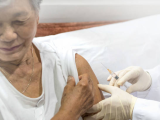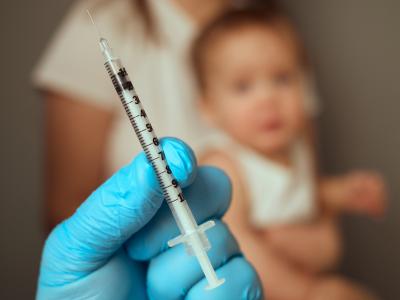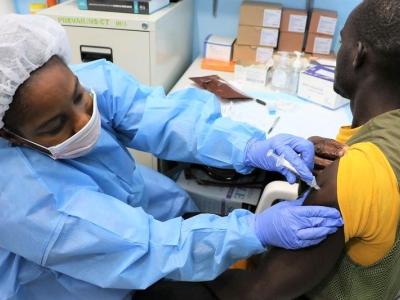Apr 12, 2010
Study: Seasonal flu vaccine may induce broadly cross-reactive antibodies
An international team of researchers reports today that individuals who received seasonal influenza vaccine produced antibodies that, when tested in lab cultures and in mice, neutralized flu viruses of several different subtypes, including pandemic H1N1 and avian H5N1. Using memory B cells from four vaccinated individuals, the researchers isolated 20 monoclonal antibodies that bound and neutralized flu viruses of the H1, H2, H5, H6, and H9 subtypes, including pandemic H1N1, in in-vitro experiments. The researchers then injected groups of mice with two of these antibodies and later infected the mice with usually lethal doses of one of four virus subtypes: a seasonal H1N1 and the avian subtypes H6N1, H5N1, and H7N7. The antibodies gave the mice full or partial protection against all of these viruses except the H7N7. Writing in the Journal of Clinical Investigation, the authors say that further studies will be needed in animals and eventually in humans to determine if the antibodies could have a role in preventing or treating flu infections. They note that even in "high responder" individuals, cross-reactive antibodies rarely reach effective neutralizing concentrations in serum.
Apr 12 J Clin Invest study
Officials investigate E coli outbreak at Washington day care center
Public health officials in Clark County, Wash., are investigating an Escherichia coli O157:H7 outbreak at a home-based day care in Vancouver that has hospitalized four children, including one who died, the county said in an Apr 9 press release. The outbreak began in the middle of March when several children had gastrointestinal symptoms. Several of the children and staff have tested positive for E coli. Because person-to-person spread of the illness may be occurring, the county's health officer ordered the day care to temporarily close. An Apr 10 Associated Press (AP) report said county officials determined that the hygienic practices at the center, which most recently cared for 22 children, were acceptable and that it has been open since 1990 with no filed complaints. The public health department said it will monitor the children and staff for 10 days, and those who have symptoms won't be able to return until symptoms resolve and they test negative for the bacterium two times, 24 hours apart.


















